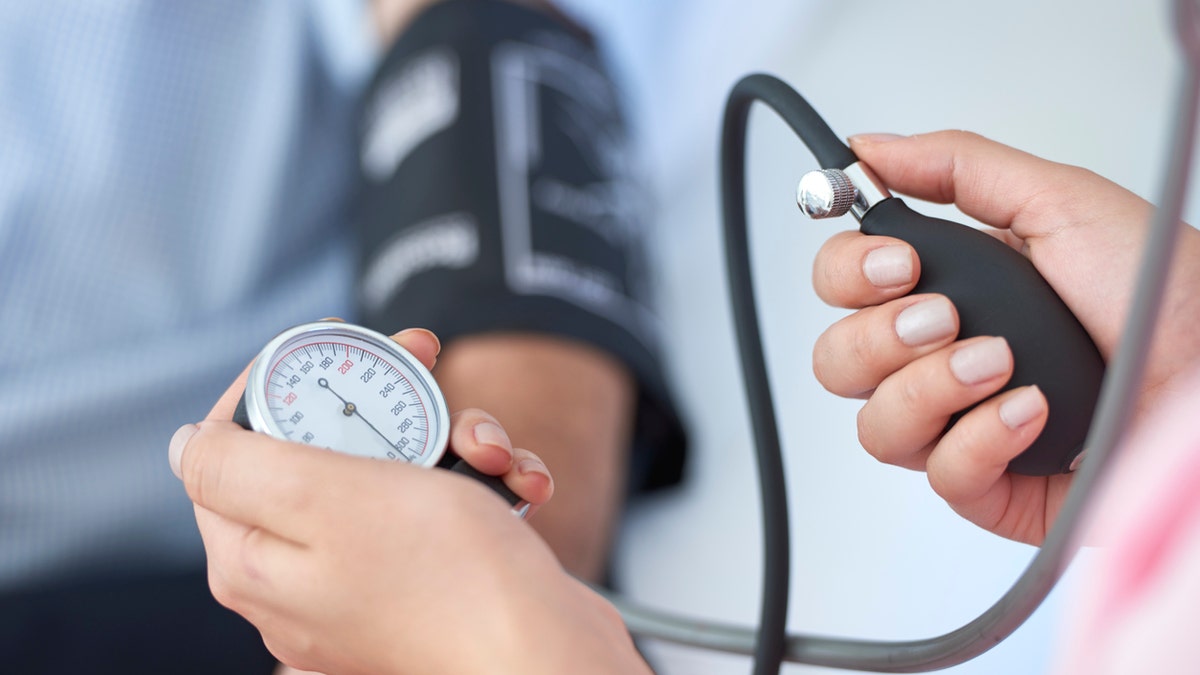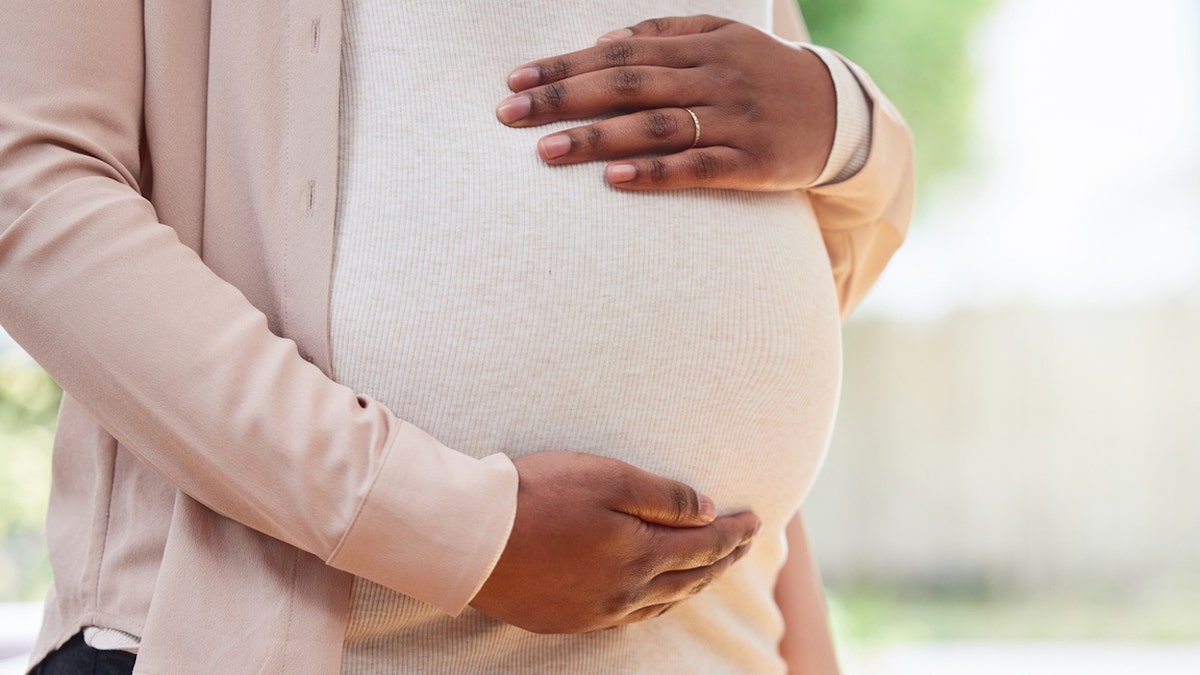Fox News Flash top headlines for March 2
Fox News Flash top headlines are here. Check out what's clicking on Foxnews.com.
Black women face a significantly higher risk of developing high blood pressure (hypertension) in their childbearing years, according to a new study published in the Journal of the American Heart Association.
Researchers from UMass Chan Medical School in Worcester, Massachusetts, analyzed data that was collected from 1,293 women between 2001 and 2018.
The women were all between the ages of 20 and 50 and had high blood pressure.
Black women were found to be more than twice as likely to have uncontrolled blood pressure than White women. Additionally, Black and Hispanic women were more likely to have obesity than White women.
The American Heart Association defines uncontrolled blood pressure as measuring 140/90 mmHg or higher.
For comparison, a normal blood pressure range is less than 120/80 mmHg.

Black women were found to be more than twice as likely to have uncontrolled blood pressure than White women, according to a new study published in the Journal of the American Heart Association. (iStock)
"Our study showed that Black women of child-bearing age with hypertension are more likely to have uncontrolled pressure than White women even after controlling for social determinants of health, medical conditions and lifestyle," lead author Claire Meyerovitz, a fourth-year medical student at UMass Chan Medical School, told Fox News Digital by email.
"Over the 18-year period studied, this disparity has continued and worsened."
Lawana V. Brown, MSN, who is based in South Carolina, is director of the Women’s Health Nurse Practitioner online program at Regis College. She was not involved in the study; she views the results as concerning but not surprising.
IRREGULAR SLEEP COULD PUT YOU IN THE DANGER ZONE FOR HEART DISEASE: STUDY
"As an African American health care provider, I realize that we have an issue with hypertension in this community that is more significant than in other communities," she told Fox News Digital in an email.
Many of Brown’s family members and patients have experienced hypertension issues — and she herself was diagnosed with it in 2018, she said.
Hypertension poses risk during childbirth
Approximately 17.6% of women in their childbearing years experience hypertension, the researchers found.
"Identifying and addressing factors that contribute to disparities in blood pressure control is especially important for women who may become pregnant, since high blood pressure is a leading cause of pregnancy-related death and disability," Meyerovitz said.

The American Heart Association defines uncontrolled blood pressure as a reading of 140/90 mmHg or higher. A normal blood pressure range is less than 120/80 mmHg. (iStock)
"Although hypertension is a treatable, common and chronic condition, it is a leading cause of pregnancy-related deaths and severe disease," senior study author Lara C. Kovell, M.D., a cardiologist at the UMass Chan Medical School, told Fox News Digital in an email.
"The United States has much higher rates of pregnancy-related deaths than economically similar countries — and Black women are disproportionately affected."
Approximately 17.6% of women in their childbearing years experience hypertension.
Black, Hispanic and Asian women were found to have a higher risk of stroke or "severe morbidity" during delivery.
Black women were also three to four times more likely to die during childbirth than White women.
The Centers for Disease Control and Prevention (CDC) defines severe maternal morbidity as "unexpected outcomes of labor and delivery that result in significant short- or long-term consequences for a woman’s health."
Food access, dietary choices play a role
When comparing each ethnic group — 59.2% were White, 23.4% were Black, 15.8% were Hispanic and 1.7% were Asian — the researchers also found that Hispanic and Black women experienced food insecurity more than White women.
Food insecurity, as defined by the FDA, is "a lack of consistent access to enough food for every person in a household to live an active, healthy life."

The researchers found that Hispanic and Black women experienced food insecurity more than White women. "Food insecurity and a lack of access to healthy foods have been shown in other studies to increase the risk of high blood pressure," said one of the authors of the new study. (iStock)
One out of every four Black women and one in three Hispanic women were found to lack access to healthy foods.
"Food insecurity is important when thinking about high blood pressure since sodium levels are higher in many lower-cost food options such as canned, ultra-processed and fast foods," said Dr. Kovell.
BE WELL: ADD AN EGG (OR 3) TO YOUR DAILY DIET FOR HEART HEALTH
"Moreover, food insecurity and a lack of access to healthy foods have been shown in other studies to increase the risk of high blood pressure."
The study did not detect a difference in blood pressure between Hispanic women and White women, despite the fact that Hispanic women experienced a greater degree of food insecurity.
BREAST CANCER AND MAMMOGRAMS: EVERYTHING YOU NEED TO KNOW ABOUT THE DISEASE, SCREENING AND MORE
"Diet is very much a key to better health outcomes," said Brown of South Carolina. "The African American diet has traditionally included fried foods that are highly seasoned and have high amounts of sodium, and this can contribute to hypertension."
"Prepared or processed foods also tend to be easy and cheap choices, and these often contribute to poor health outcomes."
She added, "Since we all lead busy lives, prepared or processed foods also tend to be easy and cheap choices, and these often contribute to poor health outcomes."
Lead author Meyerovitz said that to her, the findings suggest other factors at work as well — including racism, discrimination and stress.

"Although hypertension is a treatable, common and chronic condition, it is a leading cause of pregnancy-related deaths and severe disease," said the lead author of a new study. "The United States has much higher rates of pregnancy-related deaths than economically similar countries — and Black women are disproportionately affected." (iStock)
"Stress is a factor, as the ‘strong Black woman’ narrative impels some to hide their fatigue and emotions," said Brown, who is African American, on this point.
"Chronic stress is often associated with health conditions such as hypertension."
Study had limitations, researchers say
Although the study included a large and diverse sample of women, the researchers admitted some limitations.
The study only looked at women in the U.S. and relied on self-reported survey data.
Also, it did not account for differences in subgroups within the larger ethnic groups.

The new study looked only at women in the U.S. and relied on self-reported survey data. In addition, it did not account for differences in subgroups within the larger ethnic groups. There were other limitations as well. (iStock)
Additionally, only one blood pressure measurement was included for each woman — and there was no data on whether prescribed medications were taken as directed.
Healthy lifestyle choices are key
To help counter the higher risk of elevated blood pressure, Dr. Robert Salazar, a cardiologist at Memorial Hermann in Houston who was not involved in the study, said maintaining a healthy lifestyle is a must.
CLICK HERE TO SIGN UP FOR OUR HEALTH NEWSLETTER
"Regular exercise, fresh foods and an avoidance of excess sodium remain the mainstay for optimal health," Dr. Salazar told Fox News Digital in an email.
"Additionally, patients should have regular follow-ups with their physician to allow for assessments of general health, including mental health and medication adjustments as needed."
CLICK HERE TO GET THE FOX NEWS APP
The study authors recognize that more research is needed in this area.
"We undertook this study to help explain the U.S. maternal mortality disparity, but we still have a lot of work to do to understand the differences in maternal mortality between White and Black women," Dr. Kovell said.











































